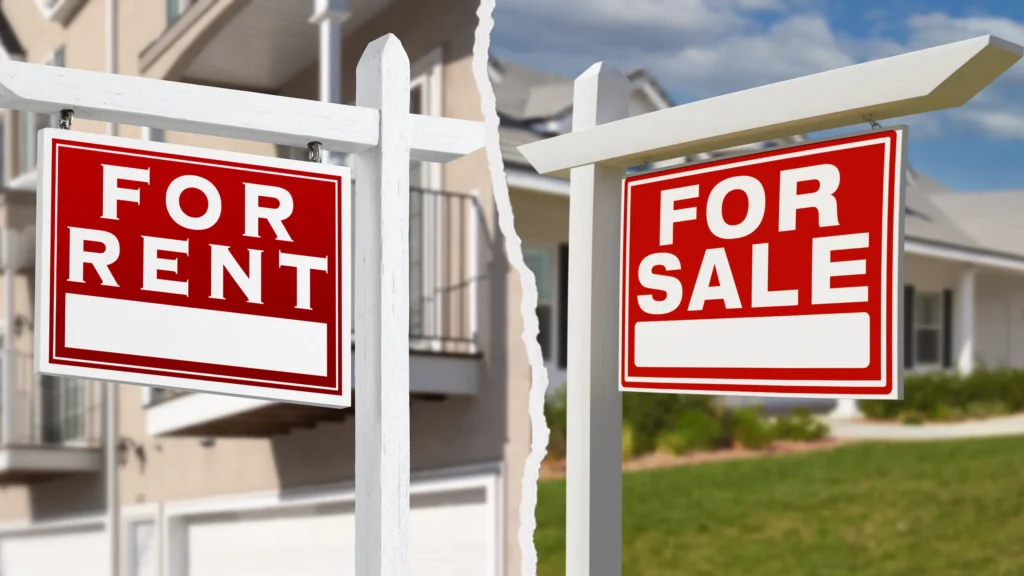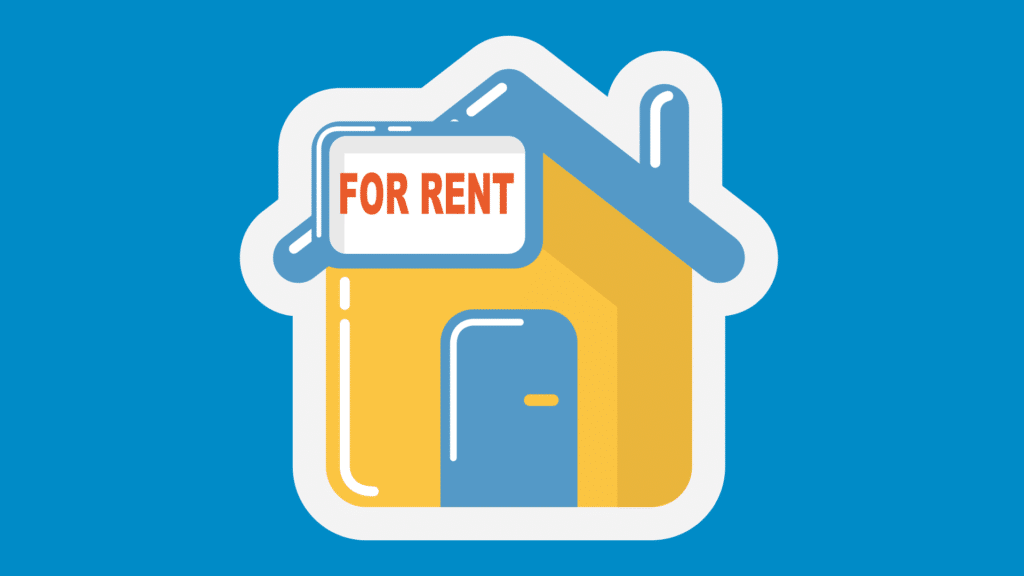Real estate has long been considered a solid investment, but for homeowners, there’s an even bigger question: is it worth renting out a house? Renting out a property can be a lucrative source of passive income, but it also comes with unique responsibilities, financial commitments, and risks. Whether you’ve inherited a property, are considering buying a second home, or want to make use of a home you no longer occupy, this guide will help you understand if becoming a landlord aligns with your goals and lifestyle.
In this article, we’ll explore the financial, personal, and legal aspects of renting out a house, and answer the key question: is it worth renting out a house for you?
Contents
Understanding the Financial Side of Renting Out a House
One of the main reasons people consider renting out a property is to generate extra income. But before jumping in, it’s essential to evaluate if it’s worth renting out a house based on the numbers. Here are some financial aspects to consider:
1. Rental Income Potential
The most obvious benefit of renting out a property is earning rental income. To determine if it’s worth renting out a house, start by researching the rental market in your area. Rental rates can vary significantly based on location, property type, and amenities. If the projected rental income covers the mortgage, property taxes, insurance, and maintenance costs, you might find it’s worth renting out a house to generate steady cash flow.
2. Tax Deductions and Benefits
Rental properties come with certain tax advantages. Many expenses, such as repairs, property management fees, and mortgage interest, can be tax-deductible. Depreciation is another potential benefit, allowing you to deduct a portion of the property’s value each year. These deductions can make renting out a house worth it, especially if the tax savings contribute significantly to your bottom line.
3. Property Appreciation
Beyond the immediate rental income, the value of the property itself can increase over time. If your property is in a growing area, you might see its value appreciate, adding to your net worth. This potential growth in property value can make renting out a house worth it as a long-term investment.
4. Mortgage Payoff
If you have a mortgage on the property, rental income can help offset your monthly payments. In some cases, the rent might cover the mortgage entirely, allowing your tenants to essentially pay off your investment. This situation can make renting out a house worth it as a way to build equity without personally covering the costs.

Assessing the Responsibilities of Being a Landlord
Before determining if it’s worth renting out a house, consider the responsibilities that come with being a landlord. It’s not just about collecting rent; being a landlord requires managing the property, addressing tenant needs, and ensuring everything runs smoothly.
1. Property Maintenance
Owning a rental property means you’re responsible for repairs and maintenance. From plumbing issues to appliance breakdowns, the costs and effort to maintain a property can add up. Regular upkeep is essential, and if you’re not prepared to handle these tasks, hiring a property manager is an option—but that comes at a cost. Whether you plan to manage the property yourself or hire help, evaluating this factor is crucial when deciding if it’s worth renting out a house.
2. Tenant Management
One of the trickiest parts of renting out a house is managing tenants. Good tenants can make the rental experience smooth, while problematic ones may cause headaches. Screening tenants carefully is crucial for ensuring timely rent payments and property care. But dealing with tenant issues, such as late payments or property damage, is a real possibility. Consider whether you have the patience and time for tenant management when asking yourself if it’s worth renting out a house.
3. Legal Responsibilities
Landlords are bound by various laws, from fair housing regulations to local rental rules. You’ll need to understand your legal responsibilities, including security deposit regulations, lease agreements, and eviction processes. Ignoring legal obligations can lead to fines or legal disputes, which could impact whether it’s worth renting out a house.
4. Time Commitment
From tenant communication to managing maintenance, being a landlord requires time. Some people enjoy the process, while others find it too time-consuming. If you already have a busy lifestyle, ask yourself if you’re willing to dedicate the necessary time when considering if it’s worth renting out a house.
Analyzing the Risks of Renting Out a Property
While there are potential rewards, renting out a house also comes with risks. These factors can influence whether it’s worth renting out a house:
1. Vacancy Periods
One of the biggest risks of rental properties is vacancy. There might be times when your property sits empty, meaning no rental income is coming in. If you can’t cover the costs during these periods, you might find it’s not worth renting out a house due to the financial stress vacancies can cause.
2. Property Damage
Tenants may not always care for your property the way you would. Damage, even if minor, can be frustrating and costly to repair. While security deposits can cover some damages, significant repairs could eat into your rental income. If you’re worried about property wear and tear, consider if it’s worth renting out a house with potential repair risks in mind.
3. Market Fluctuations
The rental market isn’t always stable. Factors like economic downturns or changes in local demand can impact rental rates. If the market takes a dip, you may struggle to find tenants or need to lower rent, impacting your profitability. When weighing if it’s worth renting out a house, consider your ability to withstand these fluctuations.
4. Financial Liabilities
Owning a rental property means you could face unexpected costs, from major repairs to legal fees if a dispute arises. If you’re not financially prepared for these potential expenses, you might find it’s not worth renting out a house due to the financial risks involved.

Evaluating the Pros and Cons of Renting Out a House
Let’s break down the main advantages and disadvantages to answer the question: is it worth renting out a house?
Pros of Renting Out a House
- Steady Income Stream: Rental income provides a reliable source of monthly income, which could make renting out a house worth it for financial stability.
- Tax Benefits: Deductions on mortgage interest, repairs, and depreciation can reduce your tax burden, potentially making renting out a house worth it financially.
- Equity and Property Appreciation: Over time, you build equity in the home, and property appreciation adds to your net worth, which might make renting out a house worth it as an investment.
- Mortgage Coverage: If rental income covers your mortgage, it can be a huge relief, making renting out a house worth it if you’re looking to offset monthly expenses.
Cons of Renting Out a House
- Maintenance Costs: Upkeep can be costly and time-consuming, which might make renting out a house not worth it if you’re unprepared for regular repairs.
- Tenant Challenges: Managing tenants requires patience, and problem tenants can complicate the experience, impacting whether it’s worth renting out a house.
- Vacancy Risks: Empty rental periods mean lost income, which could make renting out a house not worth it if you’re relying heavily on rental income.
- Legal Obligations: Understanding and adhering to rental laws is essential but time-consuming, and legal risks can arise, which might make renting out a house not worth it if you’re not willing to take on these responsibilities.
Frequently Asked Questions
Q: How much can I make renting out a house?
A: Rental income varies depending on the property’s location, size, and condition. In high-demand areas, rental income can be substantial and may cover mortgage payments, taxes, and expenses. Researching local rental rates can help you decide if it’s worth renting out a house based on potential income.
Q: What are the tax benefits of renting out a house?
A: Rental property owners can deduct mortgage interest, property taxes, repairs, and depreciation, which can reduce taxable income. These tax benefits can make renting out a house worth it financially, especially if they offset significant costs.
Q: Do I need a property manager?
A: Property managers handle tenant selection, maintenance, and rent collection. While it’s an added expense, hiring one might make renting out a house worth it if you lack time or live far from the property.
Q: What happens if a tenant damages the property?
A: You can use the security deposit for repairs, but extensive damage could require additional funds. Considering potential repair costs is important when deciding if it’s worth renting out a house.
Q: Can I rent out my house part-time?
A: Yes, short-term rentals on platforms like Airbnb allow part-time renting. However, local regulations may limit this option. Part-time rentals may make renting out a house worth it for those not ready to commit full-time.

Final Verdict: Is It Worth Renting Out a House?
Renting out a house can be a profitable investment with the potential for long-term financial gains, tax benefits, and equity growth. However, being a landlord requires time, effort, and a willingness to take on the responsibilities that come with the role. Is it worth renting out a house? If you’re prepared to manage tenants, handle maintenance, and weather potential vacancies, renting out a property could be an excellent investment.
For those who prefer a hands-off approach, working with a property manager can make the process smoother. Ultimately, is it worth renting out a house depends on your financial goals, risk tolerance, and lifestyle. With careful planning, renting out a house could offer substantial rewards, but it’s essential to weigh the risks and responsibilities to make the right choice for your situation.
See also Is It Worth Buying A House With Oil Heat?

Hello, I am Henrik Garrison from El Dorado, California. I love gaming and exploring new features. When I couldn’t find clear advice online about buying certain game features, I decided to start a blog to help people decide whether to buy games, products, or services.

